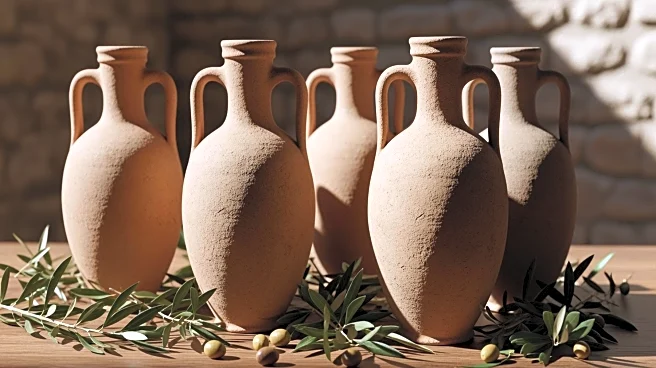What's Happening?
Archaeologists have uncovered the Roman Empire's second-largest olive oil processing complex in Tunisia, providing significant insights into the region's historical role in olive oil production and trade. The site, located in the Kasserine region near
the Algerian border, features a monumental torcularium with twelve beam presses and a second facility with eight presses. The discovery highlights Tunisia's importance as a major supplier of olive oil to Rome, with the region's climate being particularly suitable for olive cultivation. Artifacts from various eras, including a decorative bracelet and architectural elements, were also found, offering a glimpse into the agricultural and socioeconomic structures of the time.
Why It's Important?
The discovery of the olive oil processing complex in Tunisia sheds light on the economic and cultural significance of olive oil in Roman Africa. Olive oil was a vital commodity, used not only in cooking but also in personal care, sports, medicine, and as fuel for lighting. The site's excavation provides valuable information about ancient production techniques and trade networks, contributing to our understanding of historical agricultural practices and economic systems. This find enhances our knowledge of Roman-era trade and its impact on regional development, offering a deeper appreciation of the historical interconnectedness of Mediterranean cultures.
















